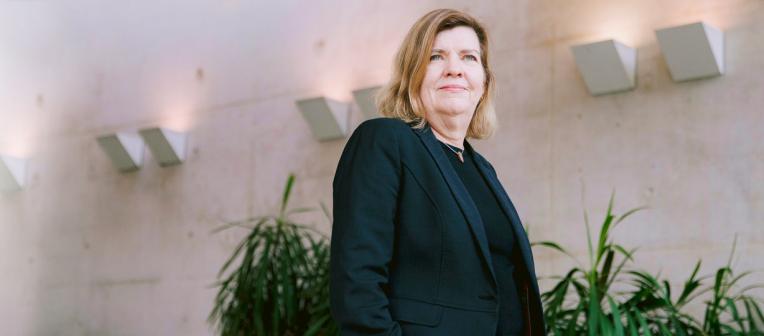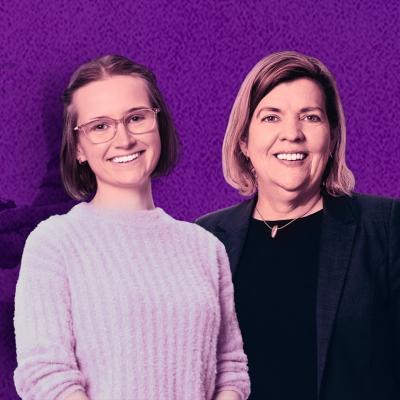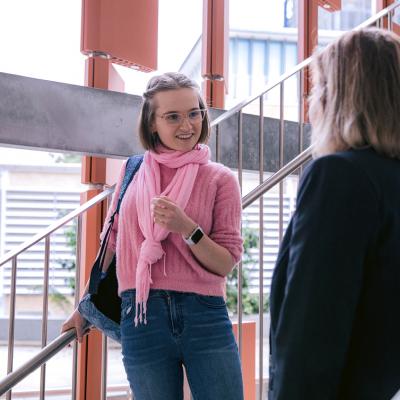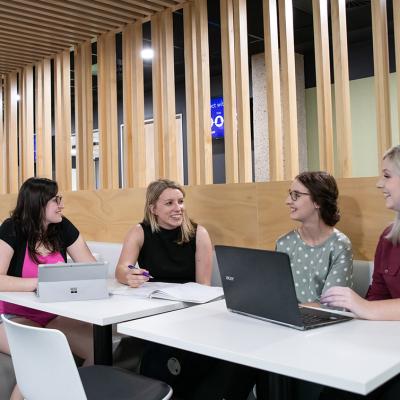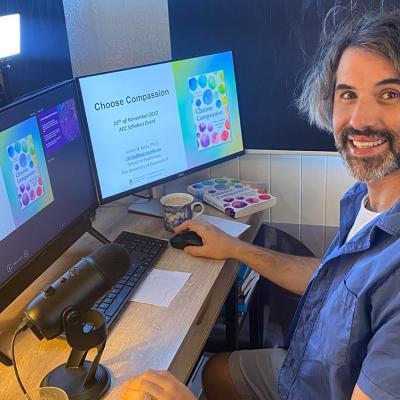Throughout her years of research and firsthand experience, Professor Karen Healy has never lost the motivations that led her to embark on her chosen career.
Not available in your region? Watch here.
Finding the right career path
For Professor Karen Healy, a decision to pursue a career in social work was about finding the perfect intersection between what she was passionate about and what she was good at. Of all the possible pathways she could have taken, social work stood out to her as an area where she could have a real impact on the world around her.
“As a young person I was very interested in social justice and creating a better world – which, of course, is something I’m still interested in,” says Karen, head of the social work and counselling disciplines at UQ.
“My particular aptitudes were for the social sciences and the humanities, so I thought social work was a great combination of my passions and my academic strengths."
"I also liked the fact that a social work degree actually prepared you for employment, which you can’t deny is an appealing aspect for anybody undertaking further studies.”
Throughout her career, Professor Healy has worked in a broad range of roles, working in schools and community health, and later in child protection and family support for government and non-government agencies.

Karen's next step: a PhD
Deciding to undertake a PhD was the next step in improving her skill and knowledge bases. Since then, she has written several books about social work and been offered directorships on numerous boards of major charities and non-government organisations.
“The main thing that made me want to complete a PhD was that I wanted to see more evidence-informed practice,” she says.
“I was concerned that often decisions were made on the spot and sometimes based on gut feeling. I wanted to be able to contribute to the knowledge base for the very serious decision-making that social workers are involved in."
“There are two areas I am primarily passionate about. The first is child and family social work. I’m very committed to improving the lives of vulnerable children, young people and their families. The second area I’m really interested in is social work knowledge for practice. I teach in foundational communication skills and advanced communication skills, so everything from an initial interview with a person seeking help through to more complex situations such as mediations where conflict may be involved.”
The future of social work
Like everything, social work is a field that is evolving with technology, and social work students now need to grasp how databases, systems and algorithms interact with their goals – and can help to achieve them.
Yet many of the core skills that have always made good social workers – compassion, perception, communication and empathy – remain the strongest assets one can possess.
“Changes in society have been positive for many, but some individuals and families are subject to a lot of stress. In practice today, social workers need to be able to manage very complex family situations – situations where people are vulnerable to abuse,” says Karen.
“Abuse can occur from childhood to later life, so having the skills to handle those situations is really important. The way we prepare students is through extensive use of simulations of realistic practice situations. We don’t just teach in lecture-tutorial format; we have a lot of workshops and seminars where students are taken through different real-life scenarios, where they need to apply skills and knowledge.
“In the final year in most of our courses, the last piece of assessment is the simulation of a complex situation, such as taking a family mediation, or a healthcare or mental health assessment. We involve actors playing clients very realistically in those scenarios."
“It’s something I do have a fire in my belly about – preparing students for situations they will often encounter early in their careers. I want our graduates to be great practitioners and change agents who make a positive difference to the world."
Meet some other UQ academics or learn more about the Bachelor of Social Work (Honours).

